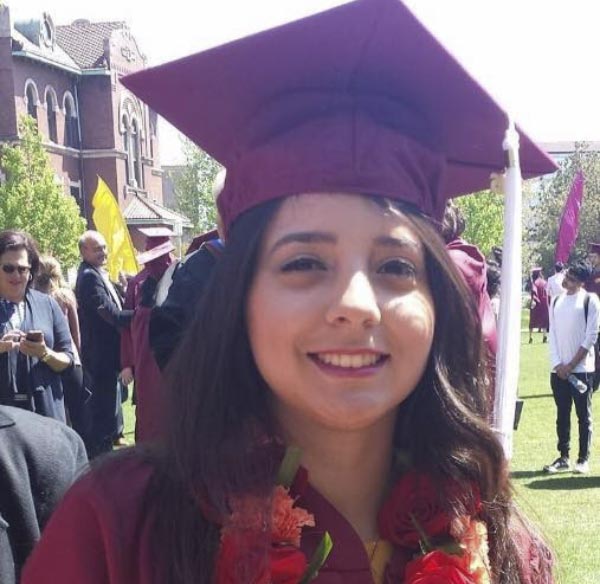
By: Jennifer Taylor, Graduate Student/Intern
Contributors: Public Health Committee at MOLA
Topic: Breast Cancer Prevention During and After COVID-19: Resources to Avoid Prevention Care Delays in The Latinx Community What happens when I delay my mammogram checks? #breastcancerawareness Is it safe to follow up breast cancer screening in times of COVID19? #latinxcommunity #latinxwomen #COVID19 #coronavirus
Why do we, Latinx community, culturally delay our routine mammogram checks? Why are we so convinced that negative emotions, like “getting” the cancer, obey “the law of attraction”? Culture and folklore have always played an important role in the behavioral approaches of the Latinx community when it comes to preventative care causing delays. 1 “Fatalism,” is the fear of getting the disease by attracting it with thoughts by the cultural framework of destiny.1,2 However, these studies demonstrated that once educated, subjects develop awareness and willingness to seek preventative healthcare speaking strongly of resilience rather than hopelessness.2
According to the American Cancer Society, breast cancer can be influenced by factors like genetic predisposition, age and race/ethnicity.3 The cancer incidence and mortality in Latinx has decreased significantly, the incidence rate is 93.7 per 100,000 the same as Native American and Asian, 1.3x lower than Non-Hispanic Whites and Non-Hispanic Blacks, 130 and 123 per 100, 000 respectively.3 Although the statistics favor Latinos at this point, the concern of a shift to the opposite remains at the face of the COVID19 pandemic.
Breast cancer screening is the most important component of breast cancer prevention.3 Cancer patients are among those at higher risk of developing serious illness from an infection including the new coronavirus disease also known as COVID-19 because their immune systems are often weakened by cancer and its treatments.4,5 During these unprecedented times precautions to lower their risk of infectivity such as social distancing prevention are highly recommended by health officials as the states continue to relax and lift stay-at-home orders to reopen businesses.4,7
Should people still get screened for cancer during this pandemic? What should you do if you’re due (or overdue) for a cancer screening? The answer to the question of whether it’s safe to be screened again might not be the same for everyone, so it’s important to talk to your doctor if it’s safe to screen at this point, risk vs. benefits, and what’s best for you when preparing for COVID19 safety practicesl.8
Important things to consider: What is your risk for the type of cancer you’re being screened for? Is the risk of postponing cancer screening bigger than the risk you face from COVID-19? How are the number of COVID-19 positive cases in your area, and what is your risk for having complications if infected with COVID-19 (based on things like your age and if you have other serious health conditions)? What measures is the center taking to help protect you and others from COVID-19 (such as pre-screening patients for COVID-related symptoms before appointments, allowing for physical distancing between patients and for longer appointment times if needed, cleaning equipment and surfaces after each patient visit, and having staff wear personal protective equipment)? Ask your doctor if postponing screening is sensical at this time. Remember that cancer screening can save lives, so it’s important to not just forget about it.3,4,9 Screening tests are different from tests your doctor might order if you have symptoms that could be from cancer. If you’re having symptoms you’re concerned about, contact your health care provider about the best course of action for you at this time, delaying your cancer screening could be deleterious to your health with serious consequences such as breast cancer.9
References:
1. Tejeda, S., Gallardo, R., Estwing, C., & Rauscher, G. (2017, Abril 1). Breast Cancer Delay in Latinas: The Role of Cultural Beliefs and Acculturation. Journal Behavioral Medicine. https://www.ncbi.nlm.nih.gov/pmc/articles/PMC5332480/.
2. Flórez, K., Aguirre, A., Viladrich, A., Céspedes, A., De La Cruz, A., & Abraído-Lanza, A. (2008, February 6). Fatalism or Destiny? A Qualitative Study and Interpretative Framework on Dominican Women’s Breast Cancer Beliefs. Journal of Immigrant and Minority Health. https://link.springer.com/article/10.1007/s10903-008-9118-6.
3. American Cancer Society. (2020). Breast Cancer Facts & Figures, p3-5. Retrieved from https://www.cancer.org/content/dam/cancer-org/research/cancer-facts-and-statistics/breast-cancer-facts-and-figures/breast-cancer-facts-and-figures-2019-2020.pdf.
4. American Cancer Society. (2020). Common Questions About the New Coronavirus Outbreak. Retrieved from https://www.cancer.org/latest-news/common-questions-about-the-new-coronavirus-outbreak.html
5. Susan G Komen. (2020). Coronavirus (COVID-19) and Breast Cancer. Retrieved from https://ww5.komen.org/BreastCancer/coronavirus-information/.
6. Hamilton, A.S, Hofer, T.P., Hawley, S.T., Morrell, D., Leventhal, M., Deapen, D., Salem, B. & Katz.S.J. (2001). Latinas and Breast Cancer Outcomes: Population-Based Sampling, Ethnic Identity, and Acculturation Assessment. American Association for Cancer Research. Retrieved from https://cebp.aacrjournals.org/content/18/7/2022.full-text.pdf.
7. Robbins, R. (2020). Routine Cancer Screenings Have Plummeted During The Pandemic, Medical Records Data Show. Stat Health Tech. https://www.statnews.com/2020/05/04/cancer-screenings-drop-coronavirus-pandemic-epic/.
8. MayoClinic. (2020). Healthy Lifestyle: Women’s health. Retrieved from https://www.mayoclinic.org/healthy-lifestyle/womens-health/in-depth/breast-cancer-prevention/art-20044676.
9. Epic Health Research Network. (2020). Delayed Cancer Screenings. Retrieved from https://ehrn.org/delays-in-preventive-cancer-screenings-during-covid-19-pandemic/
